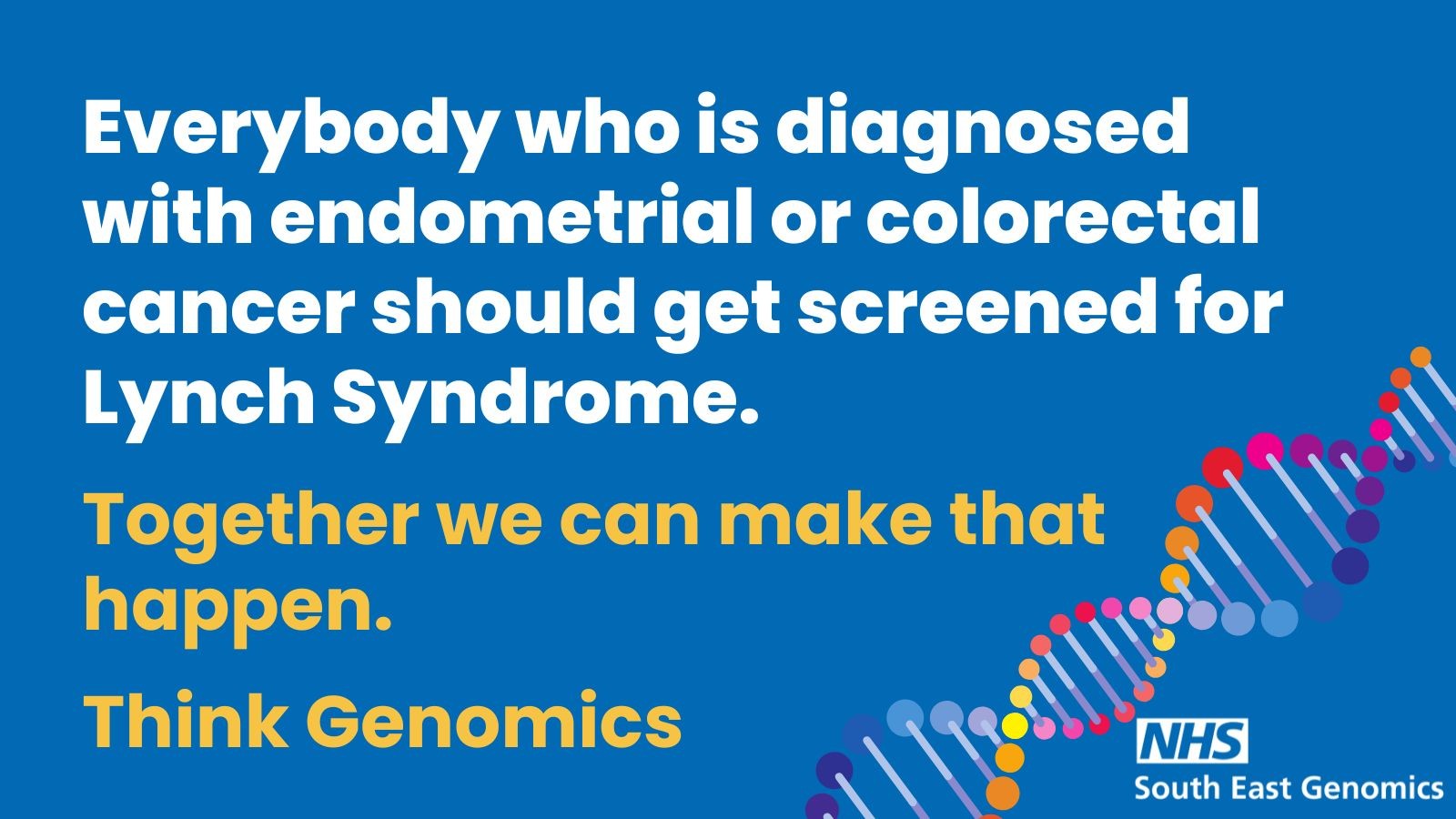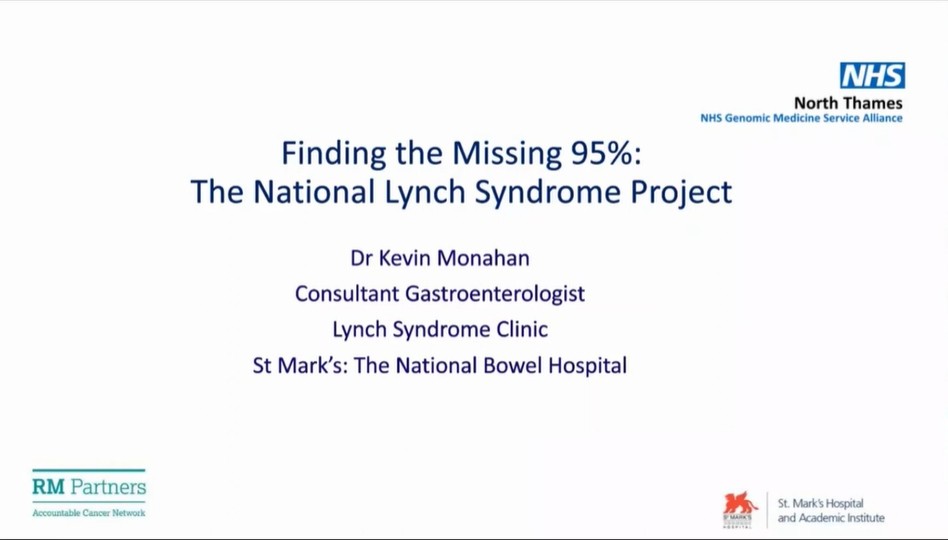What is Lynch Syndrome? 
Lynch Syndrome is an inherited genetic condition. Around half of all people with Lynch Syndrome develop colorectal cancer. It is also responsible for a range of other cancers including endometrial, gastric, small bowel, urothelial and brain cancers.
Each year, 1,100 colorectal cancers and at least 260 endometrial cancers are caused by Lynch Syndrome, making it the most common form of hereditary colorectal cancer and most common form of hereditary endometrial cancer.
An estimated 175,000 people have Lynch Syndrome in the UK, but fewer than 5% of individuals know they have the condition (Bowel Cancer UK).
For this reason, the National Institute for Health and Care Excellence has recommended that all people diagnosed with colorectal or endometrial cancer are tested for Lynch Syndrome. (NICE DG27 diagnostic pathway and NICE DG42).
Referring patients for genetic assessment
Approximately 3.3% of all people with colorectal cancer and 2-3% of all women with endometrial cancer will have Lynch Syndrome.
Every patient with a new diagnosis of colorectal or endometrial cancer should be tested for Lynch Syndrome. Following testing and if indicated, multi-disciplinary teams (MDTs) should refer patients for germline testing. This can be done by direct referral from the MDT into the local clinical genetics centre for germline testing or through mainstreaming – see below for more information on mainstreaming.
Eligible patients should be informed by an MDT member that they will receive a genetic assessment.
The SSCA has worked with the NHS South East Genomic Medicine Service Alliance, clinicians and local pathology services to produce Standard Operating Procedures (SOP) to help teams implement and deliver the Lynch Syndrome testing pathway for colorectal or endometrial cancers. The guidance is for members of colorectal and gynaecological MDTs. It outlines the diagnostic testing pathway and individual MDT's responsibilities for onward referral to regional genetics expert centres.
Click on the buttons below to download the SOPs.
What is mainstreaming?
Mainstreaming refers to the shift of germline testing away from the Clinical Genetics to other clinics and specialities - for example in the local hospital.
The NHS South East Genomic Medicine Service Alliance has developed a series of bespoke tutorials which aim to provide the training necessary to set up a local mainstreaming service.
At the end of the training, individuals will be able to:
- Describe Lynch Syndrome and its predisposition to cancer
- Understand the eligibility criteria for genetic testing for Lynch Syndrome
- Demonstrate drawing a family pedigree
- Identify appropriate genomic testing requests
- Describe the importance of informed consent in the context of a possible Lynch Syndrome diagnosis, including the patient’s right to decline genetic testing
- Identify scope of practice and know how/where to seek further support and assistance where relevant
The training package will be tailored to the person undertaking the training however, sessions typically last for 2 hours and run every fortnight for approximately 6 weeks.
If you or a member of your team are interested in mainstreaming, please contact the South East Regional Lynch Syndrome CNS aela.limbu@gstt.nhs.net
South East Genomics
The NHS South East Genomic Medicine Service Alliance brings together providers within Surrey, Sussex, Kent and south London, to work in partnership to support the systematic embedding of genomics in to mainstream care.
Find information about Lynch Syndrome including workshops and training events here: South East Genomics Lynch Syndrome





